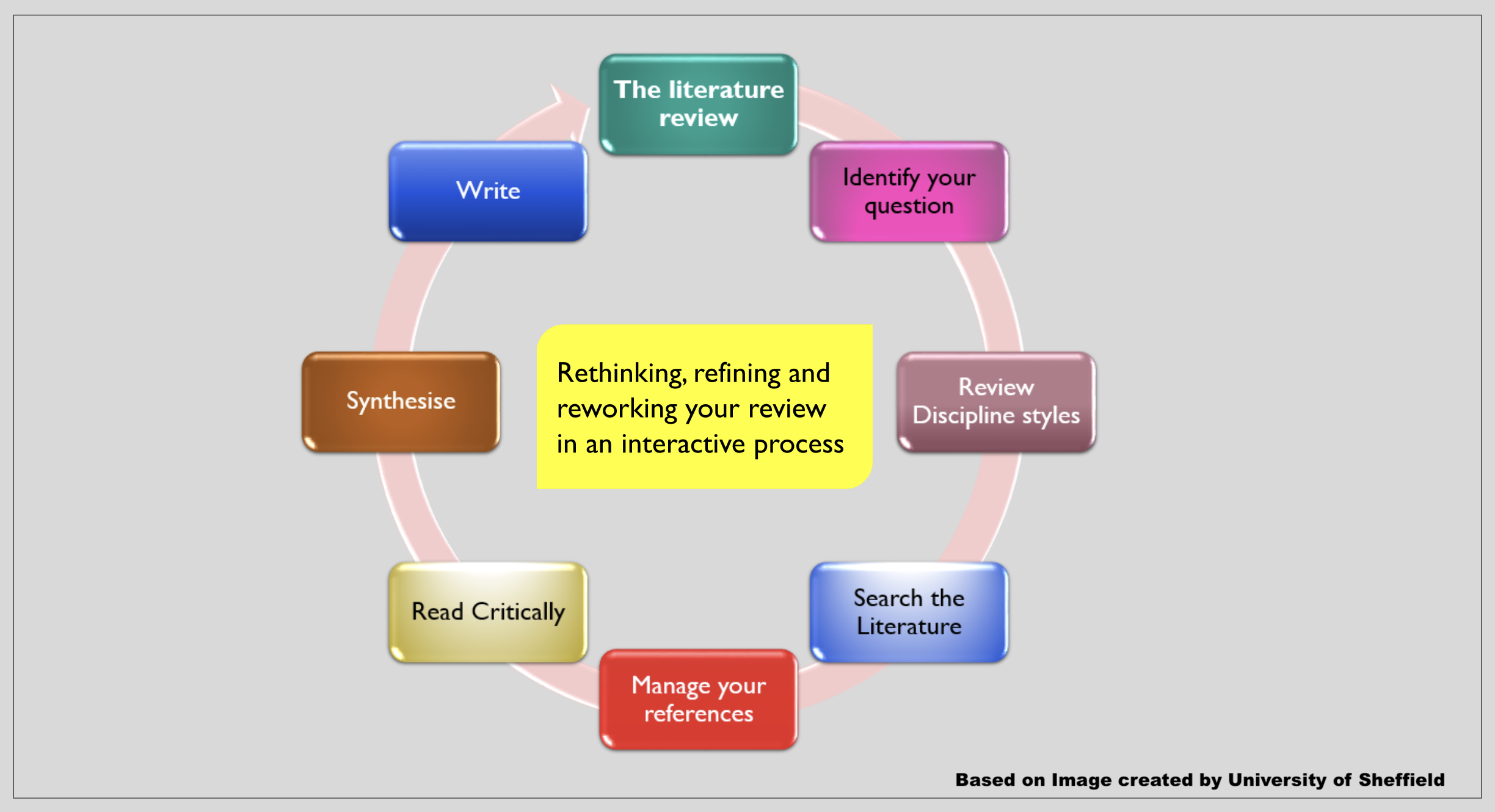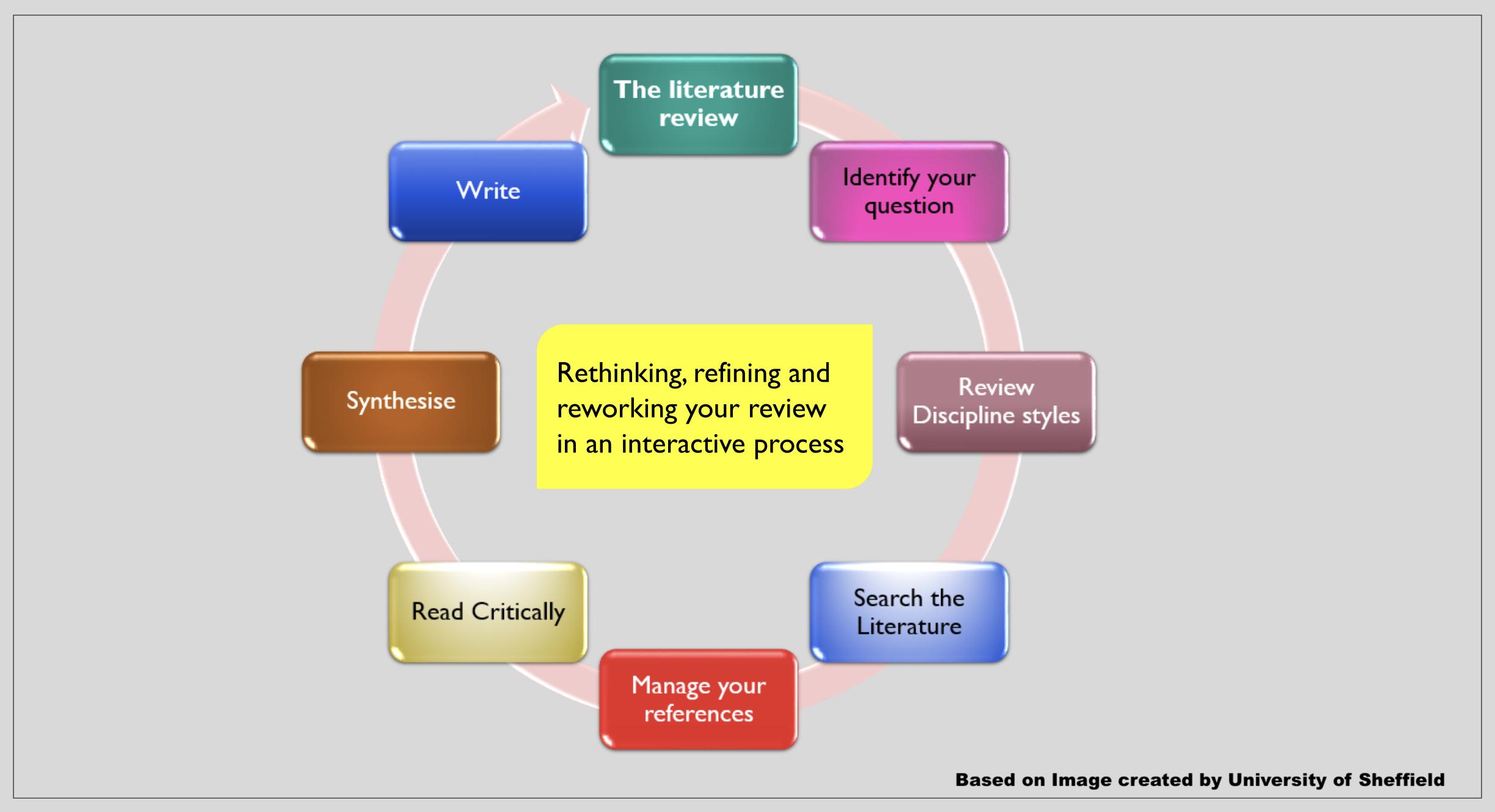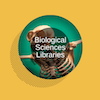
This page provides some literature review pointers, including links to resources that provide in-depth literature review help. For one-to-one support, please get in touch with the Library here.
Start your literature review early
Your literature review will help you to find out what is already known about the topic you are investigating and will enable you to understand your research topic thoroughly. It may help you to avoid inadvertently replicating work that has already been done. It will help you to answer that important question: Which areas deserve further investigation?
You can learn more about the literature review in this handy video from North Carolina State University Library:
CC 3.0
Be systematic
Approach your literature review in an objective, methodical and structured manner. Plan what you are doing in a way that you could describe so that somebody else could replicate what you have done.
Define your research topic, and frame it as a question
Clarify your research question. What is the scope and purpose of your research topic? What criteria are you including and excluding in your question?
Stay current
For longer pieces of work, set up current awareness alerts in the major databases.
❗Where to find resources?
To search for peer-reviewed journal articles, make use of the variety of databases available to you, including PsycINFO, PubMed, Scopus and Web of Science. They do not all index the same material, so by interrogating them all, you will cover more bases. Also visit A-Z Databases, for Psychology subject, and access the list of databases the University of Cambridge offer to you.
Identify the key journal/s in your area of interest and look through some individual issues to get a broader perspective on the area.
To search for books, try major catalogues such as COPAC or WorldCat.
Consider other sources, such as websites and blogs. Google Scholar is worth searching, but bear in mind its limitations. It has limited ontological knowledge, and it searches broadly. It will also retrieve non-peer reviewed material.
If you are having difficulty retrieving the full text of relevant material, please get in touch with the Library by email here.
❗Searching the literature
The LibGuide for student skills has excellent content to support you during your literature searching.
❗Manage your results
The recommended style for citations and referencing for research projects or dissertations for the undergraduate courses offered by the Department of Psychology is APA.
Use reference management software, such as Zotero, Mendeley or EndNote. The UIS provides software training (self-paced) for referencing management software (Zotero, Mendeley and EndNote).
If you need extra help, go to the comprehensive guide to referencing, Cite Them Right Online avaliable here.
Extra help needed?
There is help on how to critically appraise material on the Psychology Library Guide.
Please book 1/1 support with the Librarian, contact us.
Links to literature review chapters
Reardon, D.F. (2006). The literature review. In Doing your undergraduate research project. SAGE.
Bell, J. (2010). Doing your research project: A guide for first-time researchers in education, health and social science (5th ed.). Open University Press. See especially Part 1, Chapter 5.
The Psychology Library has multiple copies of Sternberg, R.J. and Sternberg, K. (2010). The psychologist's companion: a guide to writing scientific papers for students and researchers. 5th edition. Cambridge University Press (Psychology Main Library class mark T.1.2). This book gives excellent advice on how to write clearly, and it includes a chapter on commonly misused words. It is also available as an ebook; to access this, go to IDiscover.
SAGE Research Methods Online
A fabulous library of over 800 books on all aspects of research, including:
The Sage Handbook of Early Childhood Research
Creating and Verifying Data Sets with Excel
Research Ethics and Integrity for Social Scientist: Beyond Regulatory Compliance






